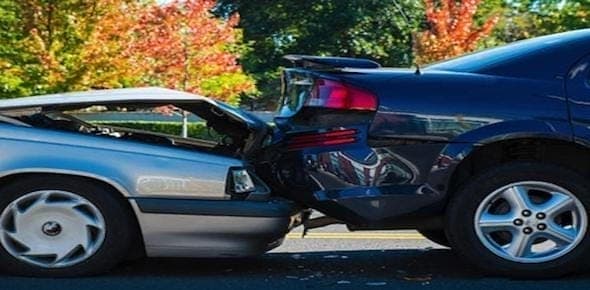In Michigan, the no-fault PIP benefits provide some mandatory reimbursement for your losses if you are injured in a car accident. Experience tells us that PIP benefits are not enough to fully compensate you for your losses and damages. Usually, filing auto negligence claim against the at-fault driver is the only way you can receive compensated for your injuries for damages and losses not covered by PIP insurance, especially after the 2019 no fault reforms.
If you hire a car accident lawyer to file a lawsuit on your behalf against the at-fault auto driver, under Michigan law you can only ask for two types of damages. You are limited to seeking damages that your own no-fault insurance benefits did not provide you. The two types of compensatory damages are:
- non-economic damages — past, present, and future pain and suffering and other changes in your quality-of-life damages
- excess economic loss damages — any out-of-pocket expenses not paid by Michigan PIP benefits coverage.
In Michigan, you have to be able to meet the conditions for noneconomic compensation e.g., serious impairment of an important bodily function that affects your general ability to lead a normal life. This is why it’s very important that you have an experienced car accident lawyer fighting for you.
Who Can Sue the At-Fault Driver?
In Michigan, you most show that that the other driver was more than 50 percent at fault for the crash to recover noneconomic damages compensation. The legal term for fault is based on the idea that the driver is “negligent,” which is simply the failure of a person to act as a reasonably careful person or violation of statute. For example, the violation of the Michigan Motor Vehicle Code — such as rear-end another vehicle, running a stop sign, failing to yield the right of way, or running a red light, are per se negligence.
However, if you were partially at fault for the car accident, you may still recover damages in a lawsuit for your noneconomic damages, as long as you are less than 51% at fault. Under this circumstance, the amount awarded by a jury as your damages will be reduced by the percentage of your own fault. Under Michigan law, this is referred to as comparative fault. For example, if you are found to be 30% at fault for the accident and the at-fault driver is 70% at fault, your damages will be reduced by 30%. However, if the suing person is more than 50% at fault for the accident, Michigan law prohibits recovery of any compensation for non-economic loss.
In your claim for non-economic damages (pain and suffering), you must show you suffered injuries “serious impairment of body function,” “permanent serious disfigurement” or death. However, Michigan law does not require proof of a threshold injury to recover excess economic damages.
There is also potentially an underinsured motorist claim that could be pursued if the at-fault driver responsible for economic damages for medical expenses and lost income that is inadequately covered under liability insurance coverage.
You should contact an experienced personal injury lawyer to assess your auto accident claim.
What If Car Accident Injuries Cause Death?
If a person dies as a result of a motor vehicle accident, a special kind of lawsuit can be filed commonly referred to as a “wrongful death lawsuit.” A wrongful death lawsuit is filed on behalf of the deceased’s estate for the surviving family members. The Michigan Wrongful Death Act governs all wrongful death lawsuits in the state. In general, this law provides that close relatives of a deceased person can receive compensation for the loss of society and companionship, loss of financial support, loss of services and loss of the love, and affection.
Who Pays Damages for Car Accident Lawsuits?
In the auto negligence lawsuit, the at fault driver’s liability insurance company will pay damages caused by the at-fault driver. You must sue the driver and owner in an auto negligence lawsuit to obtain compensation. However, the auto insurance company will only pay The up to the available insurance coverage purchased by the at-fault driver.
If you suffered damages that exceed the at fault driver’s liability coverage, the at fault driver may be personally responsible for damages above his or her insurance coverage.
What if the At-Fault Driver Is Uninsured or Underinsured?
If the at fault driver is either uninsured or underinsured, you could be able to claim against your own insurance policy if you purchased the appropriate coverage. Uninsured motorist usually means the at-fault driver had no insurance at all at the time of the accident. Underinsured motorist usually means the at fault driver did not have enough insurance coverage to pay your damages. These definitions could vary depending on the language of the insurance policy.
In most cases, the at fault driver is unable to financially pay out of personal assets. Therefore, this practical problem can be minimized by purchasing adequate “uninsured motorist coverage and underinsured motorist coverage. These two types of coverages are designed to allow the car accident victim to recover damages from his or her own auto insurance company when the at-fault driver does not have adequate insurance coverage. You should be cautious in purchasing this coverage because uninsured and underinsured motorist coverage are optional. Many drivers don’t understand them or erroneously decline to save a few dollars. The purchase price for these coverages is small, and highly recommended for every motorist to protect themselves and their families.
Free Personal Injury Consultation
If you or a loved one were injured in an auto accident, you may qualify for compensation against the at-fault driver. Call us today at 248-352-2110 or submit an online request.


